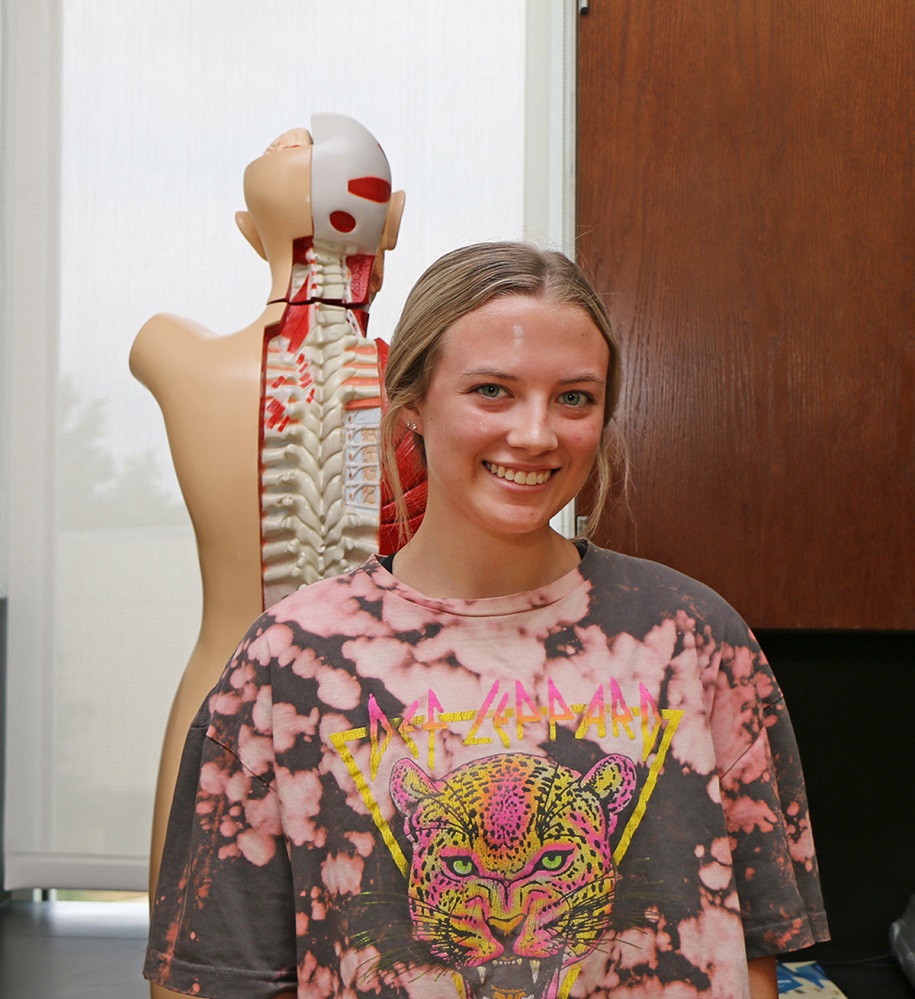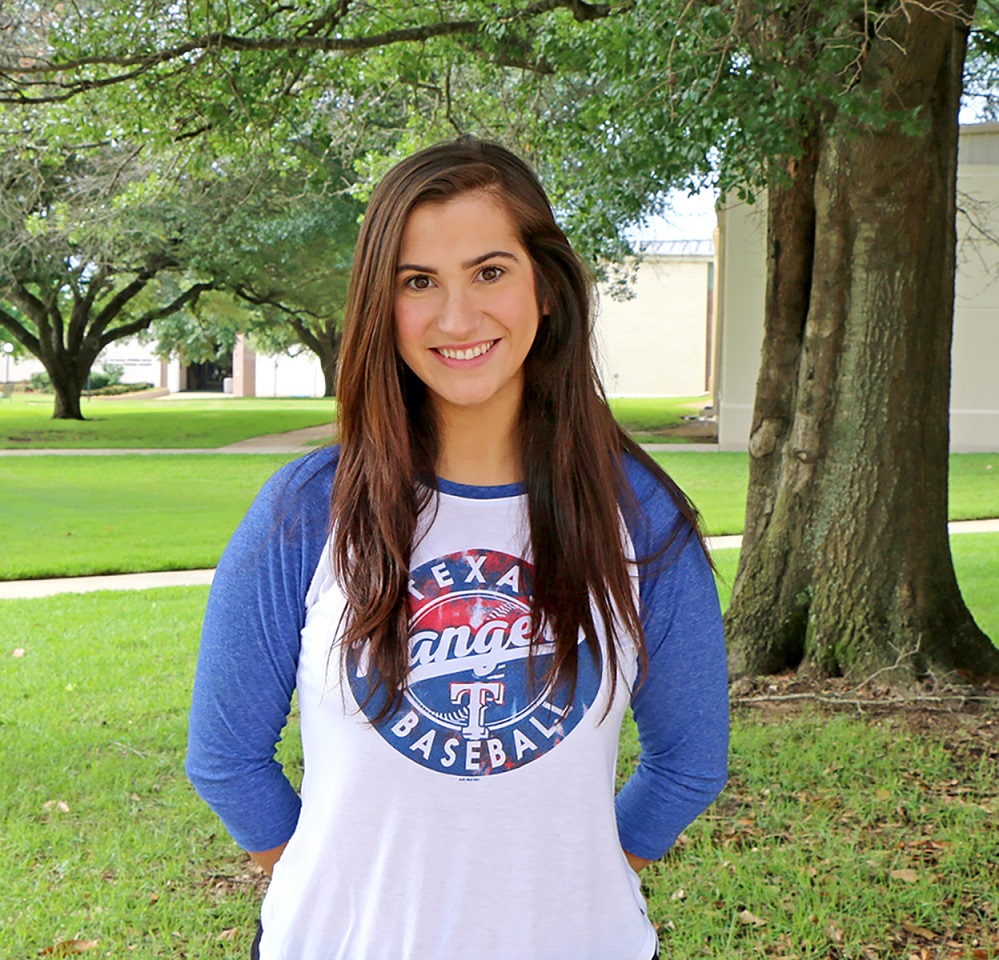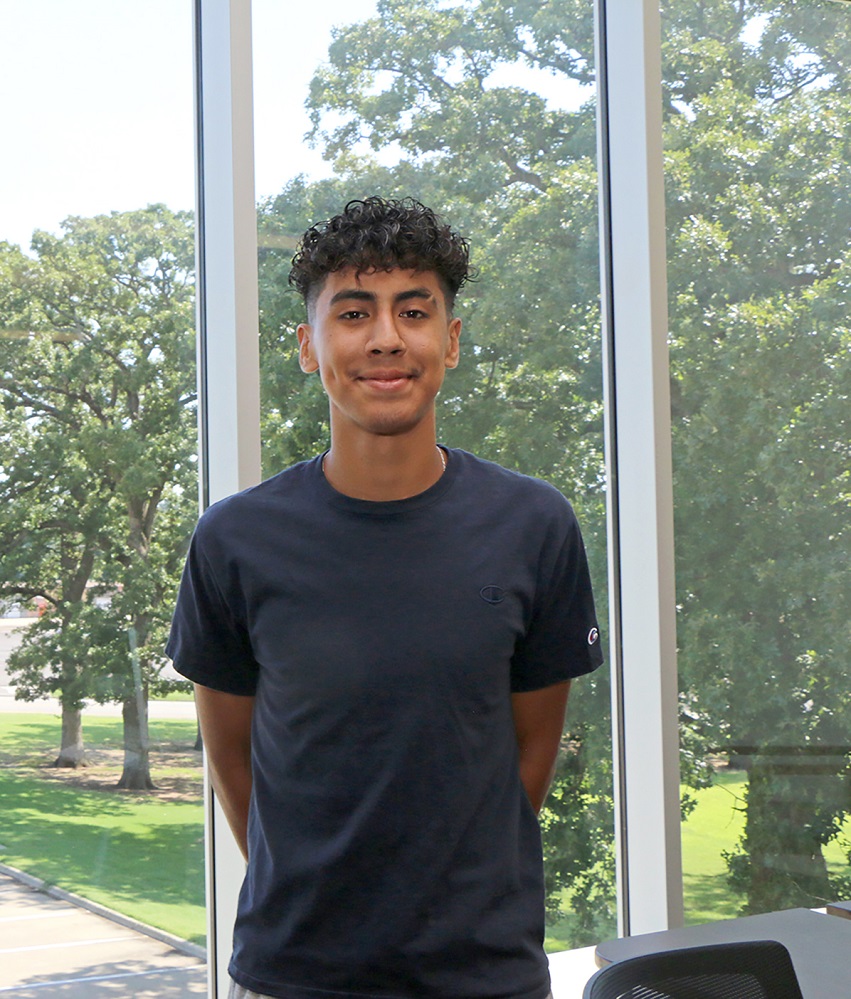Paris Junior College
Public Information Services
PJC empowers students with move to 8-week classes
Building on a long-standing commitment to student success, a majority of Paris Junior College courses will transition from 16-week to eight-week terms this fall. Students registering for Fall 2022 courses will choose Fall 1 from August 29 to October 24 and Fall 2 from October 24 to December 15. Some courses, such as those with clinicals, will remain 16 weeks in length.
Addison Exum of Paris took Anatomy and Physiology I at PJC this summer and embraced the short format.
“I think it’s best to take a short class because you have things due a lot quicker,” Exum said. “Instead of drawing it out with lecture after lecture after lecture, it’s a couple of days and an exam, then a couple of days and an exam. So everything is closer together and you don’t forget. When you have a midterm coming up, it’s easier to study.”

Increasingly, non-traditional students who work full-time, are parents, or who are both, find that they can only manage two or three classes at once.
Moving to eight-week instead of 16-week classes will, the College believes, help these students improve grades and graduation rates since they will be classified as full-time. That, in turn, helps with student completion of a certificate or degree.
Dr. Jack Brown, PJC Biology Instructor, oversees the biomedical sciences articulation agreements with Texas A&M University and the University of Tyler – MD Anderson Cancer Center. He piloted Anatomy and Physiology I in the 8-week format.
“The traditional 16-week semester tends to grind after the halfway point and I know students who have had four to five exams in one week with traditional 16-week semesters,” said Brown. “That won’t happen with 8-week terms, and with fewer classes at once students can focus more on the content since they have fewer courses at one time. Many students balance jobs and family, and I think the 8-week model will help them get their classes and maintain their work and family life.”
Colleges that have converted to the 8-week model have demonstrated increased completion of degrees by their students. The rigor remains, but students can avoid burn-out that tends to boost student dropout rates around the ninth week of a 16-week semester.
History and Government Instructor Kelly Payne piloted the new model in the Spring 2022 semester. She found benefits for both faculty and staff.
“Classes move quickly, which I found to be more interesting for me to teach,” Payne said, “and it was easier to get students on the same page.”
She innovated in the classroom with mini-video lectures and using multi-media in teaching.
“Students didn’t seem to get the mid-semester lull and were able to focus better,” Payne said. “They gained confidence with online learning and using Blackboard, they didn’t have to study for as many finals, and had more flexibility with doing homework.”
She added that students who prefer face-to-face but have limited time benefit from the hybrid model through greater flexibility. That also benefits students who work or take care of family.
Rachel Jones of Hugo, Oklahoma is a freshman English major who also took a five-week summer course at PJC.
“I think it’s a great idea,” Jones said when told of the move to 8-week classes. “It’s a lot less stress and it’s great to take three classes in eight weeks, take a break and then start back with two or three. I like the five-week format; it’s quick paced, to the point, and gets it over with.”PJC Drama Instructor William Walker agrees.
“I believe the 8-week courses alleviate many of the stressors that students encounter with a full 16-week course,” Walker said. “In the 8-week courses we are refining our output to the students to focus on the actual lessons to be taught rather than on assignments. In my case we were able to focus on what theater is really all about. As a faculty member it really helps me to focus my teaching so that my students get the information that they need to be successful in my class. At the end my students told me it was refreshing to just talk about what theater is rather than have every day as a prep for an assignment.”

At Grayson College, 11 percent of the students who were part-time converted to full-time when the college switched to the eight-week model. And at Amarillo College, student success in completing courses increased by nine percentage points.
Jeovanny Avitua graduated from Paris High School and will attend PJC in the fall, pursuing a degree in Allied Health with plans to transfer to the nursing program.
“It’s more studying and other activities have been cut down,” said Avitua, “but I think it’ll pay off. Studying more helps me remember more, and I’ve learned a lot more than I would in high school.”To get started at PJC, call 903-782-0425, email [email protected], or apply online at www.parisjc.edu/apply.

Paris Junior College — located in Paris, Texas, about 100 miles northeast of Dallas — has been a part of the Lamar County community since 1924.
Paris Junior College offers Associate in Arts, Associate in Science and Associate in Applied Science degrees, as well as Certificates of Proficiency in technical/workforce fields. The college has expanded its academic curriculum through the years to encourage associate degree and university transfer candidates. Since establishing its first vocational program — jewelry and watchmaking in 1942 — the college has been aggressive in adding technical/workforce programs that will benefit students entering the workforce.
The campus of 54 tree-shaded acres includes 20 major buildings and residence halls and provides students a unique and pleasant environment for learning.
Paris Junior College also operates centers in Sulphur Springs, Texas, and in Greenville, Texas.
Vision
To be the educational provider of choice for the region.
Mission
Paris Junior College is a comprehensive community college serving the region’s educational and training needs while strengthening the economic, social and cultural life of our diverse community.





